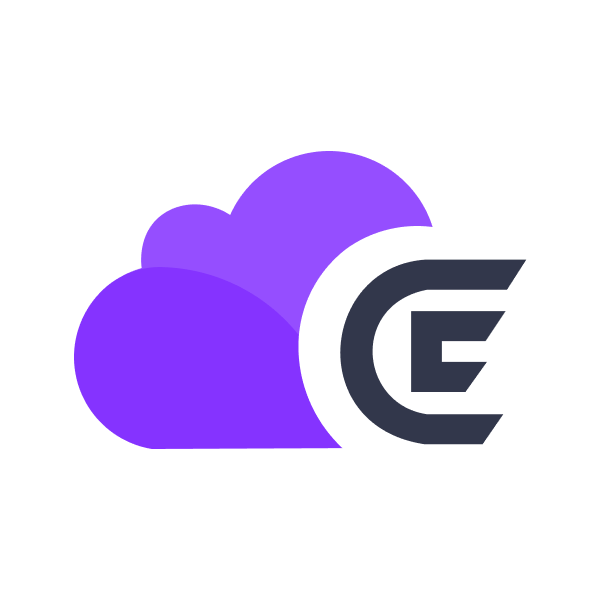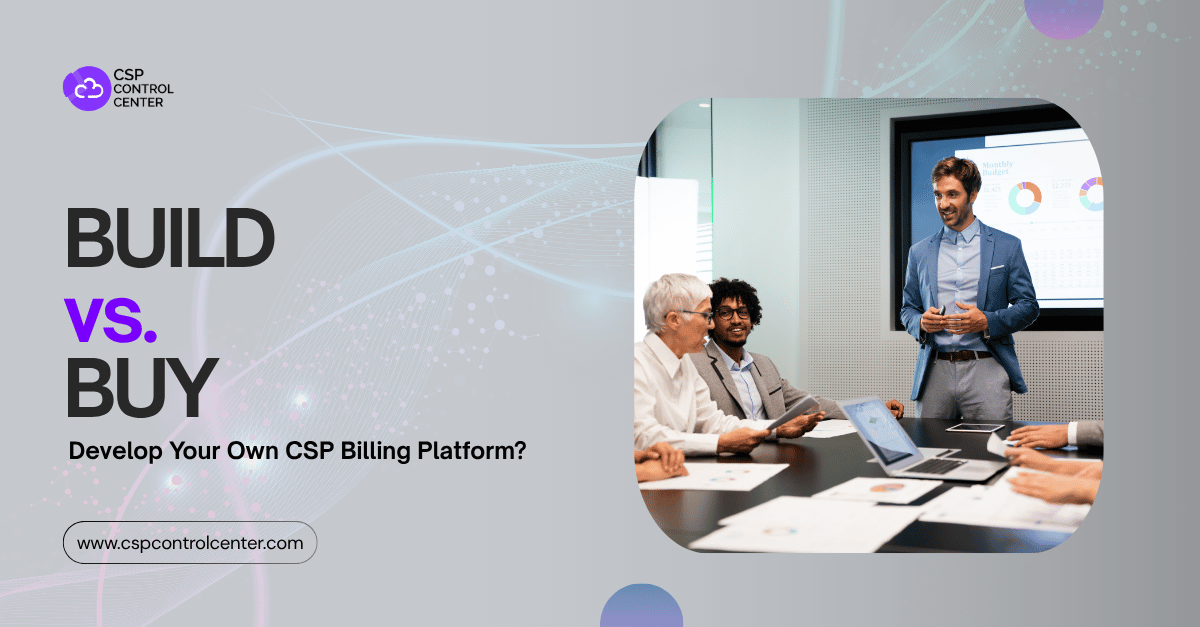Digital transformation in businesses across the globe has led to a great demand for cloud-based solutions. As a Microsoft CSP indirect provider, you can grab this opportunity to scale your existing cloud business. Microsoft’s Cloud Solution Provider (CSP) program offers three different partnership types-
- CSP direct bill partners– These partners can directly purchase first-party offers and third-party offers from the Microsoft marketplace and then sell them to their customers.
- CSP indirect providers (Distributors)– These partners purchase Microsoft cloud services directly and then resell it to end customers through indirect resellers. End customer relationship is mapped directly with Indirect resellers while services procurement approved by Indirect provider.
- CSP indirect resellers- These do not have a direct billing relationship with Microsoft. They procure the offers from a CSP indirect provider and sell them to the end customers. Indirect resellers do not need a big upfront investment to get started.
One can choose the model that is best suited to the needs of their business and even partner with other CSPs to grow collaboratively. As a CSP you can do much more than just resell Microsoft products. You have the opportunity to package your value- add services alongside Microsoft’s cloud services while managing the complete customer lifecycle.
As a CSP indirect provider (distributor), you have a direct relationship with Microsoft on one hand and thousands of indirect resellers on the other. Working with multiple indirect resellers helps expand your reach and customer base. By working together with indirect resellers, you get the added advantage of selling cloud-based solutions to various industries and verticals across multiple locations.
A CSP indirect provider can have two types of relationships with the resellers:
- Agent-style relationship– Here the resellers will refer potential leads to you and will take a commission post conclusion of the sale. In this case, the client onboarding, billing, pre-sales, and post-sales support will be taken care of by the CSP indirect provider.
- Reseller relationship– In this model, the resellers buy the Microsoft products and services from the CSP indirect provider, add their margin, and then sell it further to the end-users. The post-sales client relationship is managed by the resellers themselves.
The growth of your business as a CSP indirect provider depends upon the growth of your resellers. The more your resellers are capable of selling to their customers, the higher your revenue will be. The CSP indirect resellers are largely dependent on their distributors or CSP indirect providers for technical expertise and the infrastructure required to provide customer support and billing. As a CSP indirect provider, it is your responsibility to help your resellers scale, grow, and reach new markets.
Here is a detailed guide to help you get started as a CSP indirect provider with Microsoft.
Partnering with resellers as a CSP indirect provider
To connect and establish partnerships with resellers you must use the Partner Center. As a CSP indirect provider, you can connect with resellers who are enrolled in the CSP program as indirect resellers and have an account in the Partner Center. Apart from this, the indirect reseller should have accepted the Microsoft Partner Agreement (MPA) which allows them to transact with the indirect providers.
To start a relationship with a reseller, as a CSP indirect provider, you must send them a partnership request via email.
- The first step to onboard a reseller is to go to the Indirect resellers page after logging into your Partner Center (CSP indirect provider) account.
- On this page, select the option to Request a Partnership. On clicking this, a draft email will appear. You can edit the text of this email if you want before sending it to the reseller. You should have the reseller’s email id as well as their MPN ID associated with their Partner Location Account.
- Once a reseller accepts your request for a partnership you can start transacting with them.
Once the reseller partnership is active, their name can be seen on your indirect resellers list. You can manage different activities from here like-
- Adding the reseller to an existing or a new subscription.
- Adding new customers and associating them with a reseller.
- Placing orders for customers associated with the reseller.
- Ensuring that the resellers receive the appropriate incentives by adding their Microsoft Partner Network (MPN) ID on the subscriptions page.
- Assigning them as support contact for specific subscriptions of a customer.
In case you wish to end your partnership with an indirect reseller, you can do so by selecting the remove partnership option from the indirect resellers page. Post this the removed reseller will not be displayed on your CSP indirect provider resellers list. There will be no automated communication sent to the reseller or the customers associated with it about the removal of the partnership. You can choose to communicate with the reseller and the end customer directly if you wish or if required by your agreement.
Challenges associated with reseller management
Managing a business as a CSP indirect provider can be quite complex and comes with its own set of challenges. Your role as a CSP indirect provider is not limited to managing just the indirect resellers who have partnered with you. Being a CSP indirect provider you have the added responsibility of providing the tools and resources to your partners or resellers to help them build and grow their cloud business. Challenges in reseller management for a CSP indirect provider fall into two major categories. First, those which arise out of limited capabilities of the reseller. Second, ones which originate from reseller relationship management as a CSP indirect provider.
Challenges due to limited reseller capabilities
Due to the scope and size and scope of their business, your resellers might not have all the capabilities to enhance their growth, which invariably will function as a deterrent to your growth as a CSP indirect provider as well. Some of the top challenges with reseller capabilities include:
Customer acquisition
Resellers have to acquire new customers in an increasingly competitive market. The lower margins and the pressure of offering the solutions at competitive rates leaves limited budgets for marketing initiatives. Marketing is particularly important for customer acquisition. Marketing helps in identifying potential buyers and converting these leads into paying customers. Apart from marketing, what some cloud resellers might lack is the ability to differentiate their business from the competition.
Rising customer expectations
Customer expectations in terms of quality, service, innovation, and overall experience continue to rise. Just selling Microsoft products at competitive pricing is not enough. Customers are looking for solutions that can add value to their business. For this industry expertise and a deep understanding of the pain points of the customer’s business are required. A large number of your resellers might lack this understanding of the customer needs. As a result, they might fall short of meeting the customer’s expectations.
Managing portfolio and bundled services
Microsoft offers a large number of cloud solutions that can be added to the portfolio of a reseller. Managing so many products at the same time can be quite complex. Adding to the complexity further is the need to package different services together and offer them as a bundled solution. Bundled services are more attractive to the customer due to the lower pricing, better productivity, and comprehensiveness of the package. Though it can increase the revenue, deciding what products to package together, deciding the name and the pricing can be an uphill task for the resellers.
Managing billing and invoicing
Accurate billing is crucial for a positive customer experience. Microsoft does not provide any automated invoicing tools for its CSP partners. Cloud billing is not a one-off activity, its frequency, date of invoicing, etc. depends upon the customer. As the customers can increase or decrease their subscriptions in the middle of the billing cycle, the billing amount can also differ with each invoice generated.
The indirect resellers might find it challenging to accurately generate invoices and keep a track of payments manually. These inaccuracies apart from resulting in a poor customer experience can lead to revenue leakage as well. To avoid the complex billing and invoicing, some resellers might shy away from offering promotions and custom discounts to customers. As a cloud distributor, you not only have to manage the billing of your business but also have to cater to the billing needs of your resellers and their customers.
Providing customer support
Customers require a lot of technology and other administrative support in their cloud journey. Customer support is required right from account management help, issue resolution, 24/7 IT support, and providing training to the customers. In the absence of adequate and satisfactory customer support, the churn rate will be high which will cause a dent in your reseller’s and ultimately your profit margins.
Challenges in reseller relationship management
In addition, when it comes to managing a reseller relationship, as a CSP indirect provider, there are several challenges that will come your way, especially if you still rely on manual methods. Some of the top challenges are:
Handling multiple invoices and billing records
As the number of resellers in your ecosystem increases, it becomes difficult to manage their one time and monthly invoices. Manually keeping track of all payments and ensuring that your revenue is collected on time can then be a nightmare. Furthermore, you will need to calibrate records for each customer of the reseller. Thus, as a CSP indirect provider, your business is vulnerable to invoicing and billing errors due to the large volume of records. Variance in currency also adds another challenge when it comes to billing.
Manual bundling of offers for each reseller
You might be struggling with creating bundled offers for your resellers. While selling bundled offers can be a great source to increase revenue streams, it can be additional manual work for your team members as a CSP indirect provider to create bundled offers for each reseller.
Managing orders from different channels
Managing orders from various online and offline channels can be quite time-consuming as the record of all the orders will not be in one place. A manual record of the orders from various sources will have to be maintained adding to the administrative burden. Manual record-keeping leads to inaccuracies in order placement, tracking, and order delivery. This may result in missing out on submitting the order request in the Partner Center for some resellers.
How to manage resellers and grow revenue?
The more your resellers can sell cloud services to their customers the more will be the growth in their and your revenue. Sustained revenue growth is driven by the ability to sell more, tap newer markets, keep customers happy, and plug revenue leakages wherever possible. To achieve all these, you will have to successfully manage the resellers and help them in their business journey.
Provide value addition
Customers will look for sellers that can provide them with more value than what the usual Microsoft products are offering. The more value add-ons a customer sees for their business, the more likely they are to buy services from a particular seller. You can help your resellers fill gaps in their portfolio by offering services that are complementary to Microsoft’s offerings. This will give the buyers a more comprehensive solution for their business.
These add-ons can be in the form of premium support, specific product training, managed security, disaster recovery, third-party integrations, consulting services, etc. The price of the add-on services should not be exorbitant such that it deters the buyers. The pricing should be set such that it does not impact the overall order value by much. This will not only make your resellers the preferred vendor for many customers but at the same time, these cross-selling opportunities will increase the Average Revenue Per User (ARPU).
Help resellers with marketing
Even after offering world-class products and services, there can be a chance of not being able to reach the sales target. This could be a result of low visibility or exposure of your business to the target audience. A low marketing budget can be a reason for limited marketing initiatives by your resellers. Helping them out in reaching new customers will help in scaling their business. Well-designed marketing campaigns can be an effective tool to increase sales. Microsoft provides various personalized marketing resources that can help build an effective Go-To-Market strategy.
Building the marketing campaign on the resources provided by Microsoft can save time, effort, and money in reaching out to potential customers. The campaign messages should be specific and benefit-driven, focusing on the outcomes rather than the technology and products being used. Apart from leveraging social media and email marketing, using up-to-date website content, blog and other knowledge resources can help turn browsers into buyers. Just running campaigns is not enough, you have to be consistent with the marketing initiatives and track and analyze the metrics to gauge the impact of the campaigns.
Provide technical training
As a CSP indirect provider, you should be capable of providing technical training and assistance to your resellers. To offer appropriate solutions to customers, the resellers need to have good knowledge about the products and services that can be sold as a Microsoft CSP.
Create and sell bundles
Creating bundles of a “set” of Microsoft services along with your value add-ons as a CSP indirect provider enables you to offer an end-to-end solution to the customer through reseller. You can earn higher margins on your products leading to a higher profit. When creating a package ensure that the bundled services complement each other, and the name of the package suitably describes the solution offered.
Offer customer support
The indirect resellers enrolled in the CSP program might not have the requisite infrastructure to manage the end-to-end customer relationship. In such cases, as a CSP indirect provider, you will be the first line of support for both technical as well as operational issues faced by the end-users. Customer support should be available 24/7n to address any incidents critical to the business operations of the customers.
Use an automated billing and provisioning tool
The Microsoft CSP program requires you to have your own billing and provisioning tool. You can also support your resellers by managing the subscriptions and billing of their customers. When looking to scale the business, manually generating invoices, and tracking payments is not a feasible option. A provisioning tool is needed to manage the subscriptions of customers. An automated billing and provisioning tool will greatly reduce the inaccuracies associated with billing and order management. It will also cut down on the time spent on subscription and billing management. It will help keep you up-to-date and compliant with any changes in Microsoft’s pricing or policies.
Invest in a self-service portal
A self-service portal for both your resellers as well as their customers can be a game-changer. This will give your resellers the freedom of managing their business and the customers their subscription whenever they want. The self-service feature will lessen the administrative load for both you as a CSP indirect provider as well as your resellers, allowing you to focus more on business expansion and growth.
Manage resellers seamlessly with C3
As a leader in enabling CSPs across the globe, we understand your perils as an CSP indirect provider and believe that our technology ecosystem and unmatched features can help you manage your resellers effectively. With C3, you can:
- Manage indirect resellers’ complete business lifecycle from a single interface
- Expand access for resellers and their end customers to self-service capabilities
- Automate order provisioning to facilitate complete billing control
- Set distributor visible only mark-ups to gauge your margins
- Automate invoicing for resellers and their customers for complete accuracy
- Manage all changes to software and Azure plans/subscriptions
- Collect payment via CC, ACH and record payments collected externally
- Set account managers for your resellers as SPOCs for smooth relationship management
Drive your business as a CSP indirect provider to success with pure play automation by C3. Book a demo today to learn more.

 CSP Control Center
CSP Control Center
 CloudEvents
CloudEvents


